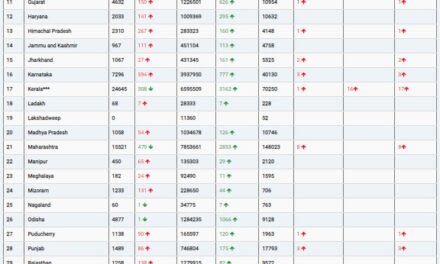September 21, 2024
The World Health Organization (WHO), in collaboration with UNICEF, has long championed the protection of breastfeeding as a crucial element of public health. In a significant step forward, the WHO has unveiled a model policy aimed at reducing the influence of commercial milk formula (CMF) manufacturers on healthcare professional associations (HCPAs). This policy, developed with input from global experts, addresses the growing concern over conflicts of interest caused by corporate sponsorship of healthcare professionals and their scientific meetings.
Targeting Conflicts of Interest in Healthcare
For years, manufacturers and distributors of commercial milk formula have utilized sponsorships to create subtle ties with healthcare professionals. These sponsorships, often involving financial support or in-kind contributions for conferences, scholarships, and exhibitions, pose a threat to the integrity of healthcare advice. Health professionals, widely trusted for infant feeding recommendations, may be unconsciously swayed by these relationships, leading to biased guidance favoring formula feeding over breastfeeding.
The WHO has highlighted that conflicts of interest compromise the objectivity of healthcare advice, with studies showing that professionals exposed to corporate sponsorship are more likely to promote CMF products to their patients. These shifts in recommendation patterns occur even when health professionals believe they are acting impartially. By fostering goodwill and influencing attitudes, CMF companies can steer healthcare advice away from breastfeeding, despite its well-documented health benefits.
The Harmful Impact of Formula Marketing
Aggressive marketing tactics by CMF manufacturers undermine breastfeeding, which the WHO emphasizes as the most beneficial form of infant nutrition. Breastfeeding is associated with numerous health benefits, including reduced infection rates, enhanced cognitive development, and lower risks of chronic diseases for both infants and mothers. Conversely, premature abandonment of breastfeeding, often driven by formula marketing, contributes to negative health outcomes.
Women who stop breastfeeding early are more susceptible to non-communicable diseases, while infants fed formula are at higher risk for infections and poorer health outcomes. Despite decades of international efforts, including the 1981 International Code of Marketing of Breast-Milk Substitutes, the inappropriate promotion of formula remains a persistent issue.
Undermining Healthcare Associations
Corporate sponsorship does more than merely affect individual healthcare professionals—it undermines the credibility of entire healthcare associations. When CMF companies sponsor scientific meetings or provide financial support, it blurs the line between independent research and commercial interests. These entanglements erode public trust in healthcare advice and damage the reputation of health professionals. In some cases, associations linked to corporate interests may be excluded from scientific discussions or editorial boards, limiting their influence on critical healthcare debates.
The WHO warns that the gradual erosion of objectivity caused by CMF sponsorship weakens the overall healthcare system. Professionals may unconsciously promote formula products, even in cases where breastfeeding should be prioritized.
WHO’s Model Policy: A Call for Change
To protect the integrity of healthcare advice, the WHO has proposed that healthcare associations commit to ending all forms of sponsorship from CMF manufacturers. The policy outlines specific activities that should no longer be accepted, such as gifts, sponsored conference sessions, advertising in program materials, and the sale of exhibition space. By eliminating financial ties with the formula industry, the policy aims to remove conflicts of interest and restore the independence of healthcare associations.
Transparency and accountability are central to the WHO’s vision, with a call for healthcare professionals to declare conflicts of interest at scientific meetings and other events. This will help ensure that healthcare advice remains focused on the best interests of patients, not corporate profits.
Protecting Public Health Through Unbiased Healthcare Advice
The long-term goal of the WHO’s model policy is to create a healthcare system free from the undue influence of CMF manufacturers. Without commercial sponsorship, healthcare professionals will be able to provide unbiased, evidence-based recommendations that prioritize breastfeeding. This is crucial for protecting public health, as breastfeeding offers significant benefits that formula feeding cannot replicate.
By cutting ties with the formula industry, healthcare professionals and associations can realign their priorities with public health objectives. The WHO’s policy is backed by research from experts at institutions like the University of Cape Town, Kumasi School of Medicine, and Queensland Children’s Hospital, all of whom have recognized the urgent need to protect breastfeeding from corporate interference.
Conclusion
The WHO’s model policy represents a crucial step toward ensuring healthcare professionals remain committed to patient care and scientific integrity. By ending sponsorships from CMF manufacturers, healthcare associations can safeguard their independence and better support breastfeeding as the healthiest option for infants. The policy serves as a blueprint for protecting public health through transparent, unbiased healthcare advice, free from the influence of commercial interests.
As the world continues to recognize the importance of breastfeeding for both infant and maternal health, the WHO’s initiative is a timely and necessary intervention to preserve the objectivity of healthcare professionals and the trust of the public.












